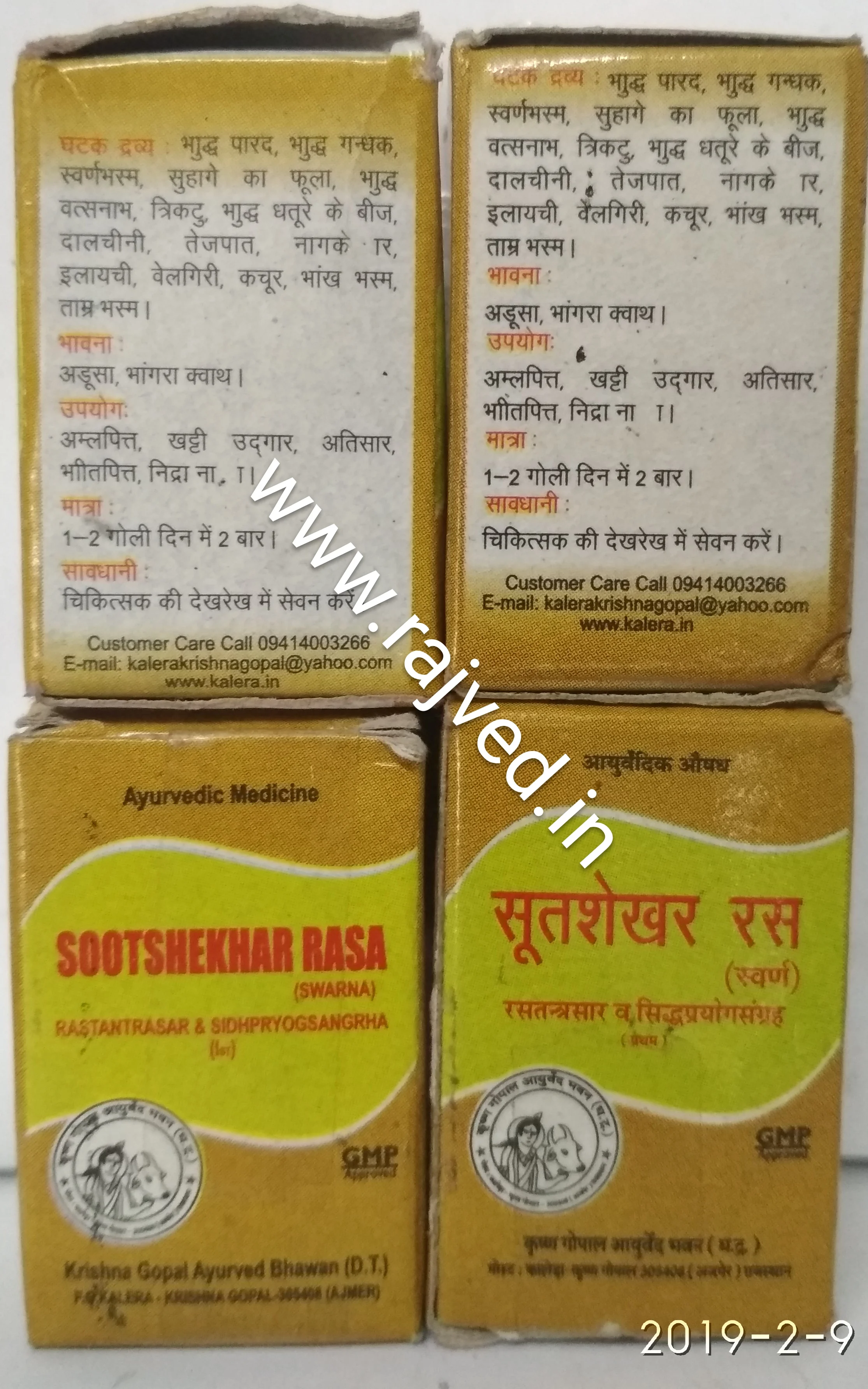sootshekhar ras suvarna 500mg upto 20% off Krishna Gopal Ayurved Bhavan
52
Items sold in last 3 hours
sootshekhar ras suvarna 500mg upto 20% off Krishna Gopal Ayurved Bhavan
₹455.00 inc. Tax
Highlights
sootshekhar ras suvarna 500mg upto 20% off Krishna Gopal Ayurved Bhavan
buy more get more
5% off on 3 piece
10% off on 6 piece
15% off on 9 piece
20% off on 12 piece
Read More >>
52
Items sold in last 3 hours
sootshekhar ras suvarna 500mg upto 20% off Krishna Gopal Ayurved Bhavan
₹455.00 inc. Tax
Highlights
sootshekhar ras suvarna 500mg upto 20% off Krishna Gopal Ayurved Bhavan
buy more get more
5% off on 3 piece
10% off on 6 piece
15% off on 9 piece
20% off on 12 piece
Shipping Available in
Additional Details
| Weight | 20.00000000 g |
|---|---|
| Brand | krishna gopal ayurved bhavan |
Best Before
Expires in between 6 Months to 2 Years from Today
SKU:
krishna gopal ayurved bhavan sootshekhar ras suvarna 500mg upto 20% off Krishna Gopal Ayurved Bhavan
Category: Dietary Supplements
Tag: sootshekhar ras (suvarna) 500mg Krishn Gopal Ayu. Bhavn (Kaleda)
Best Before
Expires in between 6 Months to 2 Years from Today
SKU:
krishna gopal ayurved bhavan sootshekhar ras suvarna 500mg upto 20% off Krishna Gopal Ayurved Bhavan
Tag: sootshekhar ras (suvarna) 500mg Krishn Gopal Ayu. Bhavn (Kaleda)
Related Products
dbt 120 tablet upto 20 % off Sharangdhar Pune
₹395.00 inc. Tax
hadjod capsule 60cap upto 15% off himalaya wellness
₹220.00 inc. Tax
krumina 60 tablet upto 20 % off sharangdhar
₹145.00 inc. Tax
liv-52 HB capsules 10caps upto 15% off the himalaya drug company
₹160.00 inc. Tax
sukhasarak vati 60 tab upto 20% off sharangdhar
₹175.00 inc. Tax
Rated 0 out of 5
0 reviews
Rated 5 out of 5
0
Rated 4 out of 5
0
Rated 3 out of 5
0
Rated 2 out of 5
0
Rated 1 out of 5
0
Be the first to review “sootshekhar ras suvarna 500mg upto 20% off Krishna Gopal Ayurved Bhavan” Cancel reply
You must be logged in to post a review.
YOU MAY ALSO LIKE…
Netra Sudarshan Ark Eye Drops (15ml) – Krishn Gopal Ayurved (Kaleda)
Rated 4.90 out of 5
(10)
₹30.00 inc. Tax
Aam Vat Vayar Vati 30 tablet upto 25% off shree sant sai ayurvedic yellow pack
Rated 5.00 out of 5
(1)
₹180.00 inc. Tax
Pymol Livcon Manulax Churna Ujwala Ayurvedashram upto 15% off
Rated 4.50 out of 5
(6)
₹520.00 inc. Tax
Pymol Livcon Manulax Churna Ujwala Ayurvedashram upto 15% off
buy more get more discount
buy 5 piece get 5% off
10 piece 10% off
15 piece 15 % off
International shipping via India post and DHL contact 8983023033 for more details
Due to increased demand and limited supply delivery of this product might take somewhere around 5-10 days.
No Urgent order please
Recently Viewed
Sign in
No account yet?
Create an Account
We use cookies to improve your experience on our website. By browsing this website, you agree to our use of cookies.



Reviews
Clear filtersThere are no reviews yet.